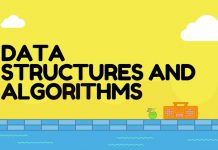Day 3: Python Mastery Unveiled – A Deep Dive into Data Structures
Welcome to Day 3 of your Python learning journey! As you progress, you’re now ready to explore the dynamic world of data structures in Python. Understanding how to organize and manipulate data efficiently is a crucial aspect of becoming a proficient programmer.
1. Lists: The Swiss Army Knife of Sequences
Lists in Python are versatile and powerful. They allow you to store and manipulate collections of items. Let’s explore some fundamental operations:
Creating a list and accessing elements.
- Modifying lists with append(), insert(), and remove() methods.
- Iterating through lists using loops.
2. Dictionaries: Mapping Key-Value Pairs
Dictionaries provide a way to store data as key-value pairs. They are incredibly efficient for quick lookups and data retrieval.
Explore the basics:
- Creating dictionaries and accessing values.
- Modifying dictionaries with update() and del.
- Iterating through keys, values, or items.
3. Tuples: Immutable Sequences
Tuples are similar to lists, but they are immutable, meaning their elements cannot be changed after creation. Learn about creating tuples, accessing elements, and their use cases.
4. Sets: Unordered Collections of Unique Elements
Sets are useful for tasks requiring membership tests and eliminating duplicate values. Explore creating sets, adding/removing elements, and set operations.
5. Integrating Data Structures: Real-world Scenarios
Now that you’ve explored these data structures individually, consider combining them to solve more complex problems. For example, create a program that stores information about students using a dictionary, where each student’s grades are represented as a list.
6. Challenges for Deeper Understanding
Implement a program that searches for a specific element in a list.Create a nested dictionary to represent a more intricate dataset.Experiment with set operations to find common or unique elements between sets.
As you conclude Day 3, you’ve delved into the realm of Python’s data structures. Tomorrow, brace yourself for Day 4, where we’ll explore file handling and delve into the world of input/output operations. Keep up the excellent work! Happy coding!
Master Your Coding Skills with BootSelf AI
If you're looking to enhance your coding abilities and upskill in artificial intelligence, look no further than the BootSelf AI app. This innovative platform provides AI-based coding lessons that are tailored to your individual learning pace.
Available on both iOS and Android, you can download the BootSelf AI app and start mastering coding skills today:











